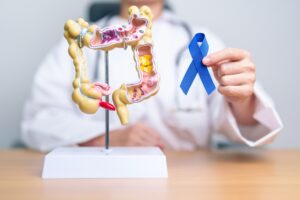
Why Colon Cancer Screening is Essential for Your Health
Early detection can identify precancerous polyps or cancer in its initial stages, significantly improving treatment outcomes.

You’ve undergone a colonoscopy procedure, and your gastroenterologist says they found colon polyps. Now what? How concerned should you be about colon polyps? Overall, most colon polyps are harmless and easy to prevent/remove, especially in the precancerous stage.
Dr. John Saltzman, Associate Professor at Harvard Medical School and Director of Endoscopy at Brigham and Women’s Hospital in Boston, affirms this by stating, “they are not cancer, and most of them have not started to change into cancer. If you get them at the precancerous phase, they don’t have a chance to grow and turn into cancer.”
Nonetheless, you don’t want to leave colon polyps alone because they may develop into colon cancer over time and potentially become fatal at later stages. According to the National Institute of Diabetes and Digestive and Kidney Diseases, anyone can develop colon polyps. Still, it’s common among those aged 45 or older, with 15-40 percent of Americans at risk of developing or may have developed intestinal polyps.
The good news is that there are ways to detect and have the polyp removed before they grow and change into cancer. Here are some things you need to know:
Colon polyps are small growths on the lining of the large intestine (colon). They’re usually benign, meaning they won’t cause any problems, especially at early stages. However, when they start growing too fast or larger than usual, they could turn into cancer.
If you notice any changes in your bowel habits, such as diarrhea, constipation, bleeding from the rectum, or abdominal pain, see your doctor for an examination and schedule colorectal cancer screening immediately. These symptoms could mean something more serious, like colorectal cancer.
You might experience one or more of these signs if you have colon polyps:
Several factors contribute to the development of colon polyps, including genetics, personal history, diet, obesity, smoking, and certain medications.
Precancerous polyps are not uncommon and are usually found as often as 40% of the time during colonoscopies. However, most polyps aren’t precancerous; they’re benign tumors. Most polyps don’t cause problems, but sometimes they bleed or grow large enough to press against nearby blood vessels. In rare cases, these may be early warning signs of colon cancer.
On the flip side, colon cancer is rare during a screening colonoscopy, with only about 40 out of 10,000 patients diagnosed with this type of cancer. And as we’ve stated earlier, removing a precancerous or benign polyp eliminates the risk of colon cancer.
As we’ve discovered above, colon cancer is usually detected in only 0.4% of all colonoscopy or CT colonography procedures. But how concerned should you be about colon polyps becoming cancerous? According to Roswell Park, only about 5-10% of all polyps will turn into cancer.
Please note that size is a critical determining factor of whether a polyp becomes cancerous. For example, a small polyp less than 1 cm in diameter has a very low chance of turning into cancer. On the other hand, a larger polyp measuring 1 cm or more in diameter has a much higher chance of becoming cancerous.
There are two main categories of polyps: adenomatous and hyperplastic. Adenomatous polyps are the most common type, accounting for about 70-90% of all polyps. They tend to occur in older adults and have a slightly higher rate of malignant transformation. Hyperplastic polyps are smaller than adenomas and are typically found in younger individuals.
Barely! After the complete removal of a polyp, it’s hard for it to grow back. But some people who had their polyps removed may experience them growing again. If this happens, however, it doesn’t mean that the polyps are cancerous.
If you notice any changes in your bowel movements after a colonoscopy, this is a sign to visit a gastrointestinal specialist immediately. Also, if you feel pain while passing stool, see your physician as soon as possible. Painful stools could indicate an infection or bleeding inside the body.
Colon polyps are noncancerous growths that can appear anywhere along the length of the colon. Although most polyps are benign, they can become cancerous if left untreated. Therefore, it’s important to remove these polyps before they become cancerous. A colonoscopy is one of the best ways to detect and remove polyps. It also allows doctors to check for signs of colorectal cancer and remove any abnormal tissue.
At Allied Digestive Health (ADH), we’re an integrated network of gastroenterology centers committed to providing our patients with the highest quality care. Our team of board-certified gastroenterologists, nurse practitioners, dietitians, pharmacists, and support staff work together to create personalized treatment plans for each patient. And we’re here to help you get rid of those pesky polyps once and for all. So we invite you to contact us today to schedule yours.

Early detection can identify precancerous polyps or cancer in its initial stages, significantly improving treatment outcomes.

When you’re under stress—whether from a demanding job, personal challenges, or even anxiety caused by IBS itself—it can trigger physical reactions in your body.

Maintaining awareness of hemorrhoid symptoms and consistent use of effective treatments can help prevent these long-term issues.

The connection between female sex hormones and IBS is complex but crucial to understanding why your symptoms fluctuate.
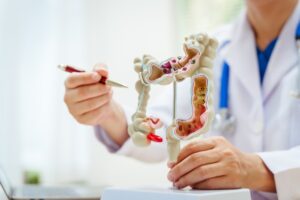
Colitis and flare-ups can vary in intensity and frequency, influenced by factors such as diet, stress, and individual health conditions.

Some may tolerate caffeine well, while others with IBS or acid reflux need to monitor their intake to prevent aggravating their symptoms.

While there is currently no cure for Crohn’s disease, various treatments and lifestyle adjustments can help manage symptoms and improve quality of life.

Irritable Bowel Syndrome (IBS) tends to affect women more frequently than men, and hormones may play a significant role in this disparity.
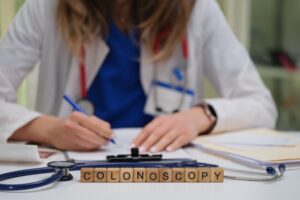
After a colonoscopy, patients are typically monitored in a recovery area until the effects of the sedative or anesthesia begin to wear off.
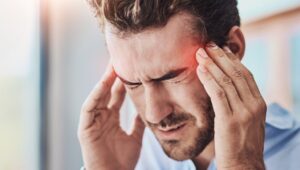
Both conditions appear to be influenced by heightened immune responses and the release of pro-inflammatory substances, further connecting their underlying mechanisms.

A gut cleanse is a practice designed to enhance digestive health by removing toxins, waste, and harmful bacteria from the gastrointestinal tract.
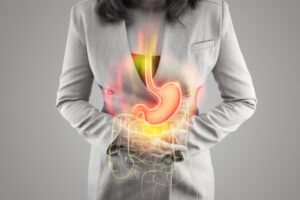
The length of a flare-up often depends on multiple factors, including stress levels, dietary triggers, and the effectiveness of current management strategies.
For Your Visit
Brick Office
P: 732-458-8300
Brick Medical Arts Building
1640 Route 88, Suite 202
Brick, New Jersey 08724
Mon – Fri: 8:30AM – 5:00PM
Sat & Sun: Closed
Neptune Office
P: 732-776-9300
Jersey Shore Medical Arts Building
1944 Corlies Ave. Suite 205
Neptune, New Jersey 07753
Mon – Fri: 8:30AM – 5:00PM
Sat & Sun: Closed
Jackson Office
P: 732-928-2300
706 Bennetts Mills Road
Jackson, New Jersey 08527
Mon – Fri: 8:30AM – 5:00PM
Sat & Sun: Closed
© All Rights Reserved